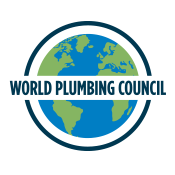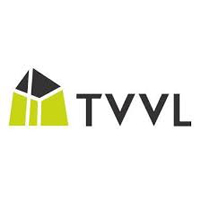Climate change is putting the availability and quality of (drinking) water under pressure throughout the world. This increasingly results in initiatives concerning alternative sources (rainwater and grey water) to replace the (drinking) water used in sanitary appliances. In addition, old sanitary appliances are being replaced by water-saving versions. However, scientists are expressing concern about the use of water-efficient appliances, including water closets, taps and showers, that are connected to the existing water mains and drainage systems. They fear that unsafe situations will arise.
Climate change, urbanisation, and the growing need to efficiently use water, energy and resources have ensured that the sanitary technology world is on the eve of a revolution. From 23 through 25 August, TVVL, in collaboration with CIB in Haarlem, will offer a stage to scientists and technical experts working in the field of supplying water, drains and sanitary provisions for buildings. Experts from all over the world will meet at the 43rd ‘Water Supply and Drainage’ symposium of the International Council for Research and Innovation in Building and Construction (CIB).
Reduced water flows in existing drainage systems often lead to blocked drains, which in turn lead to unhygienic situations that can even cause disease. Less water flowing in existing water supply systems can lead to a deterioration in water quality, a higher risk of biofilm formation and the undesired growth of pathogenic bacteria, including Legionella and Pseudomonas.
Researchers in various countries are investigating the way faecal matter is transported through the drainage systems when less water is flushed through the water closets. In addition, the self-cleaning performance of the sewers if water-saving practices continue is being mapped out. Scientists at Wageningen University and Research are investigating a new system of gravity drainage involving smaller pipes in which the concentration of solid matter in household wastewater, due to a reduction in the volume of wastewater and the increase in volume of waste (residual food waste, vegetable waste). This will make it easier and cheaper for the water treatment plant to recover phosphate from wastewater. Phosphate is an essential and finite raw material that otherwise will quickly be depleted.
Experts are also concerned about the relationship between the dimensioning of the water supply systems and the amount of water that they actually supply. Existing calculation methods do not take account of the behaviour of various user groups and the rapid technological developments related to water-efficient sanitary appliances and fixtures and other equipment that uses water. The existing methods lead to the over dimensioning of the water supply systems. In addition to a deterioration in water quality, this can negatively influence sustainable and energy-efficient warm (tap) water provision. During the symposium, various countries will present their research results and propose new methods to calculate the required water supply. With respect to sanitary systems, experts point out the need to think at the system level instead of concentrating on measures at the component level, which is now often the case.
About TVVL
TVVL is the Platform for man and technology. It was founded in 1959 and currently has over 1000 private members and 500 company members. TVVL is an important discussion and knowledge partner in the technology sector. We help to establish solutions for the technical challenges of the future. At TVVL you can find and share knowledge. For instance during courses, workshops and training sessions, the online knowledge base and TVVL Magazine. In addition, TVVL organises leading and inspiring events throughout the Netherlands. TVVL Expert groups and communities are active in various professional disciplines, including electrical engineering, climate engineering, sanitation technology and building management. Multidisciplinary subjects are investigated by the IMPULS group.

